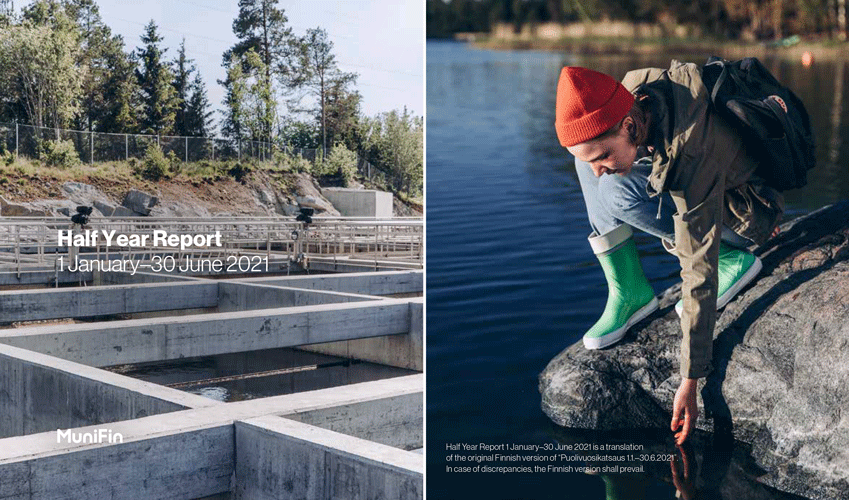
The demand for financing in the municipal sector remained lower than expected due to surprisingly good economic development and the Government’s temporary COVID-19 recovery measures. Financing for non-profit housing production saw modest growth. Overall, the growth of MuniFin’s lending portfolio returned to normal levels from the spike in demand created last year by the COVID-19 pandemic. MuniFin’s new lending for the reporting period totalled EUR 1,601 million, while total long-term funding stood at EUR 28,582 million. The Group’s net operating profit amounted to EUR 127 million.
Interest towards MuniFin’s sustainable finance products continued to grow. At the end of June, MuniFin’s green finance totalled EUR 2,120 million and social finance totalled EUR 833 million. Green finance is granted to investments that generate clear and measurable environmental benefits, while social finance is granted to investments that promote equality and communality. In total, MuniFin’s sustainable finance grew by 24.3% compared to the turn of the year.
“Our customers have been very receptive to the social finance product we introduced to the market last year. Municipalities play a key role in the achievement of climate goals, and they have indeed done innovative work to reduce emissions”, notes Esa Kallio, CEO at MuniFin.
The Finnish Parliament passed the health and social services reform bill this June. In the near future, the reform is not expected to have a major impact on MuniFin’s operations or financial outlook, but Finnish municipalities will be affected by the reform in many ways. Their need for investments is nevertheless expected to remain approximately at the current level, and many structural issues yet remain to be solved.
“Ageing population and migration to growth centres are causing financial difficulties for many municipalities. As new municipal councils begin their term in August, council members are faced with the responsible task of finding new forms of intermunicipal collaboration to tackle challenges caused by these structural problems, while also working to build a more ecologically and socially sustainable municipality”, Kallio points out.